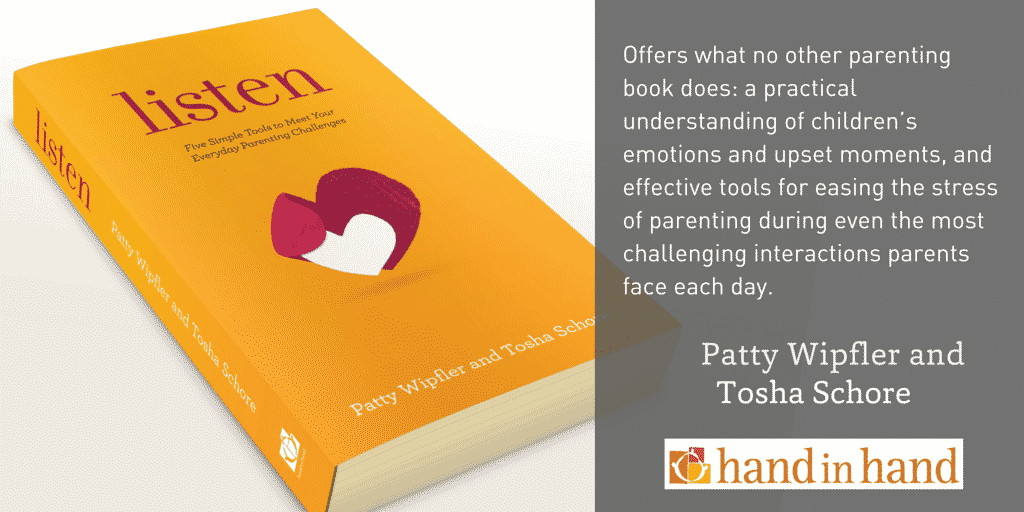What is Hand in Hand Parenting?: Day 2
A sense of connection gives real power to your child. It grants them the ability to think, to cooperate, to feel good about themselves and the people around them.
Connection opens up avenues to learning. And it helps your child develop judgment over time.
- If you want your child to be a good friend to others. Build their sense of connection.
- If you want them to be brave, nurture their sense of connection.
- If you want them to be able to amuse themselves part of the time? Plump up their sense of connection.
Special Time will help you to keep this bond of connection strong.
In Special Time, you set aside some time—from three minutes to an hour—and you play whatever your child wants to.
You say when and where you’ll connect.
And your child tells you how.
Don't I Do Enough Already?
You may be thinking, “But I already do a lot of special time with my kids! I take them to the park on weekends, let them splash and play in the bath, sing with them. They get to run around a lot more than I did. We have a lot of fun times together.”
You’re right!
Those times are important. But those times won’t have the same effect as Special Time.
You enjoy your children as they splash in the tub, but if the phone rings, you answer it.
If your partner enters the bathroom to discuss the neighbor’s noisy music, you converse.
All day long, many things can and do distract you.
But not in Special Time.
 In Special Time, you refuse to be distracted.
In Special Time, you refuse to be distracted.
You focus on just one child, while they run the show.
You do set the conditions:
For instance: “Special Time will be for fifteen minutes, we can go inside or outside, but no car today, and we won’t spend money.”
The rest is up to your child, and you’ll see them become very creative in directing things while the spotlight of your attention shines on them.
There’s always a start and an end to Special Time:
Your child looks forward to the start of Special Time. Many parents look forward to the end!
A commitment to a limited period of time will give you greater tolerance for the interesting things your child chooses to do. Maybe your child somehow gets into chewing up soda crackers in the back yard and blowing the dry crumbs out of his mouth to make snow.
Though mess makes you crazy, you can manage to chuckle and admire your child's originality when you know you don't have to do it for too long. Wisely, you promised just ten minutes, so you can almost enjoy seeing soda-cracker snow cover the grass.
You could think of the majority of the time you spend with your child as the nourishing milk of parenting.
Special Time is like the cream.
It adds an important quality—emotional safety—to your relationship. But all cream would be too rich for both of you!
On a day when you haven’t got much patience, you can set up a short Special Time. On an easier day, you can be more generous.
Special Time accustoms your child to feel well connected. It also attunes you to your child, so after a while, you’ll anticipate difficult moments more often, and learn to plan for them.
You’ll know you’ve arrived as a parent when your child notices that he’s going off track and asks for Special Time so he can reconnect, instead of spiraling down into difficult behavior.
This is a very simple tool. When you use it, you’ll be rewarded with improved behavior and greater trust.
From the Hand in Hand Toolbox:
Read Day Three in our series, How to Set Limits in Three Easy Steps
Find out what you can accomplish with Special Time:
- How Does Special Time Make Children Content?
- Find our about Using Special Time To Explore Things That Are Normally Off Limits
- Use this checklist to make the most of Special Time
- This excerpt is taken from the book Listen: Five Simple Tools To Meet Your Everyday Parenting Challenges by Patty Wipfler and Tosha Schore.

